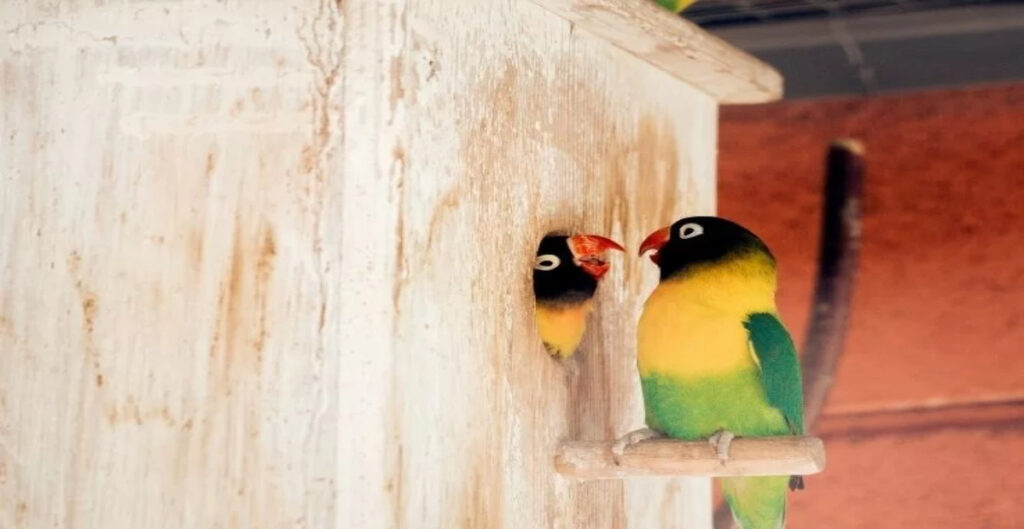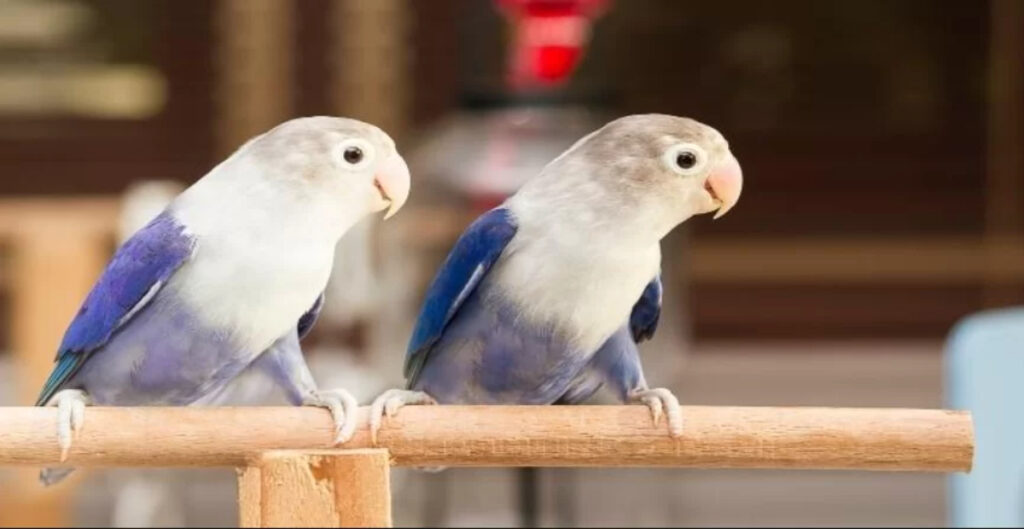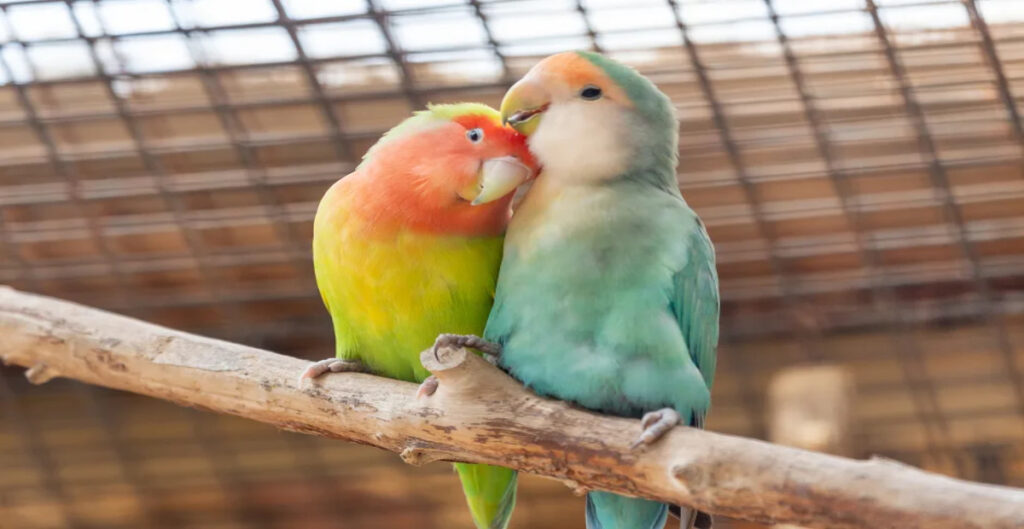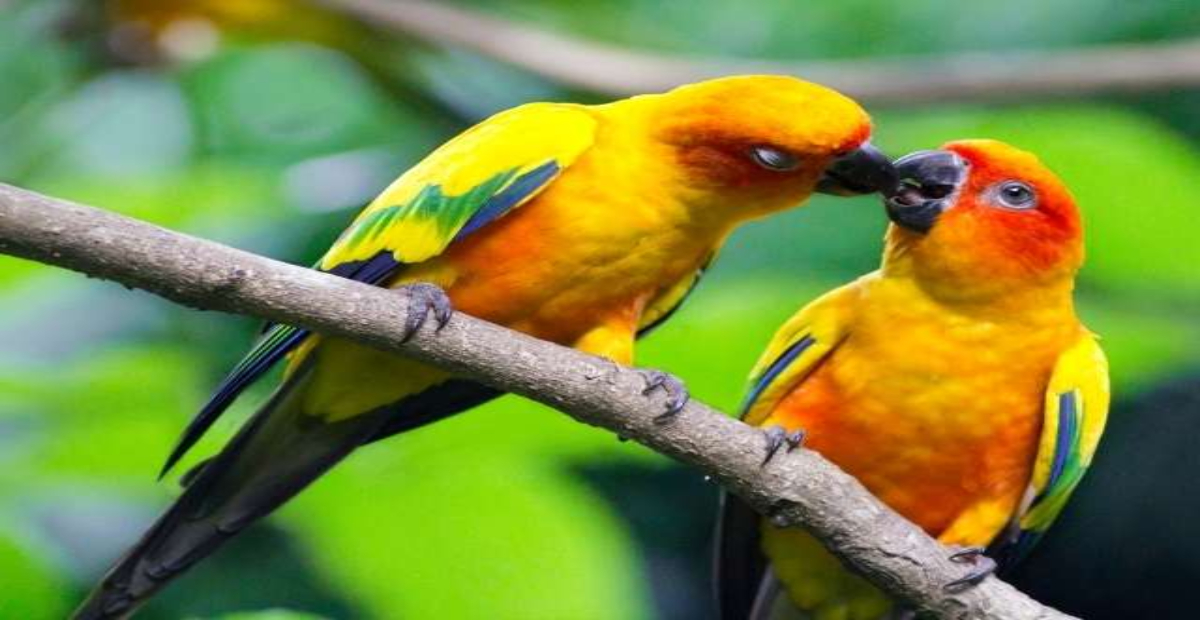
As the warm Mediterranean breeze caresses the ancient ruins and sun-drenched landscapes of Greece, a unique and beloved trend has escaped bird lovers – keeping lovebirds as pets. Known for their vibrant plumage and affectionate nature, these tiny parrots have captured the hearts of many Greeks seeking feathered companionship. However, behind their adorable exterior is a species with complex needs and behaviors that require a dedicated and well-informed approach to their care. In this comprehensive article, we delve into the intricacies of lovebird ownership in Greece, exploring the rewards, challenges and key considerations for those embarking on this avian adventure in 2024.
The Allure of Lovebirds

Lovebirds, scientifically known as Agapornis, are a species of small parrots native to the African continent and the Madagascar region. Aptly named for their tendency to form strong pair bonds, these birds have become increasingly popular pets around the world, and Greece is no exception. Their small size, striking colors and charming personalities have endeared them to bird lovers across the country.
Within the lovebird family, many species have captured the hearts of Greek bird lovers, each with its own unique characteristics:
Agapornis (Agapornis roseicollis): With their vibrant green plumage, peachy faces and gentle dispositions, these lovebirds are among the most sought-after pets in Greece.
Fischer’s Lovebirds (Agapornis fischeri): Native to the savannahs of East Africa, these lovebirds have striking orange-brown plumage and are known for their lively and playful temperament.
Masked Lovebirds (Agapornis personatus): As their name suggests, these lovebirds feature a distinctive black “mask” around their eyes, complemented by a vibrant green body and a reputation for being vocal and curious companions.
While their charm is undeniable, prospective lovebird owners in Greece need to understand that these birds come with unique challenges and responsibilities, requiring a significant investment of time, knowledge and dedication.
Housing and Environment

Lovebirds are active and energetic birds and providing a suitable living environment is vital to their physical and mental well-being. In the hot Greek climate, ensuring proper ventilation and temperature control is essential.
Cage Requirements:
Lovebirds thrive in spacious cages, with a recommended minimum size of 60 x 45 x 75 cm (24 x 18 x 30 inches) for a single bird or pair.
Equip the cage with multiple perches of varying diameter and texture to promote healthy feet and prevent obesity.
Include toys, swings and chews to provide mental stimulation and prevent feather plucking due to boredom.
Temperature and Humidity:
Lovebirds prefer temperatures between 21°C and 27°C (70°F and 80°F), with moderate humidity levels.
During the hot summers of Greece, air conditioning or evaporative coolers may be necessary to maintain a comfortable environment.
Cleanliness and hygiene:
Clean the cage regularly, removing soiled bedding and disinfecting surfaces to prevent disease.
Provide a shallow bath dish or misting system for your beloved birds to maintain proper feather condition and overall hygiene.
Diet and Nutrition
Lovebirds are energetic and active birds, requiring a balanced and nutrient-rich diet to thrive. Their nutritional needs are specific and must be carefully monitored to prevent health problems.
Seed mix:
Offer a high-quality seed mix for small parrots that includes a variety of millet, canary seed and a small portion of sunflower seed.
Supplement the seed mix with pellets designed for lovebirds to ensure a complete nutritional profile.
Fresh product:
Incorporate a variety of fresh fruits and vegetables into your lovebird’s diet, including leafy greens, berries, and chopped vegetables.
Wash produce thoroughly to remove any pesticide residue or contaminants.
Protein sources:
Provide small amounts of cooked eggs, lean meats or specially formulated bird treats as valuable sources of protein.
Water:
Provide a constant supply of fresh, clean water in a sanitized dish or bottle.
Consider adding a bird-safe vitamin supplement to the water to boost overall health.
Recruitment Tracking:
Lovebirds are prone to obesity, so monitor food intake carefully and adjust portions accordingly.
Remove any uneaten perishable food immediately to prevent spoilage and potential health problems.
Socialization and Enrichment

Lovebirds are very social and intelligent birds, who thrive on interaction and mental stimulation. Providing a stimulating environment and fostering a strong bond with the people they care for is essential to their overall well-being.
Time out of the cage:
Give your beloved birds daily out-of-cage time to exercise, explore and interact with their human family.
Create a safe, bird-proof area with various perches, toys and activities to encourage natural behaviors.
Training and Engagement:
Invest time in positive reinforcement training, teaching your beloved birds tricks and cultivating a trusting relationship.
Engage in interactive play, talking and singing to strengthen the bond between you and your feathered companions.
Flock Dynamics:
Lovebirds are social flock birds and thrive in the company of their own kind.
Consider adopting a compatible pair or small flock of lovebirds to give them the companionship they crave.
Introduce new birds gradually and under the guidance of an experienced bird professional.
Grooming and Health Care
Proper grooming and careful health monitoring are critical components of responsible lovebird ownership in Greece. By staying proactive and seeking professional care when needed, you can ensure that your feathered friends live long and healthy lives.
Feather Care:
Provide adequate swimming opportunities to maintain healthy feather conditions and prevent excessive feather pressing or plucking.
Trim overgrown claws and beaks regularly under the guidance of an avian veterinarian or experienced groomer.
Veterinary care:
Establish a relationship with an avian veterinarian in your area for regular checkups and emergency care.
Be aware of common lovebird health issues such as respiratory infections, feather plucking and nutritional deficiencies.
Quarantine new birds and watch for signs of disease before introducing them to your existing flock.
Emergency Preparedness:
Keep a well-stocked bird first aid kit and familiarize yourself with basic first aid techniques.
Locate the nearest emergency bird clinic and have contact information readily available.
Behavioral considerations

While lovebirds are known for their affectionate natures, they can also exhibit challenging behaviors that require patience and proper management. Understanding these trends is vital to a successful and harmonious relationship with your feathered companions.
Bite and aggression:
Lovebirds can be territorial and may exhibit aggressive behaviors such as biting or lunging if they feel threatened or during the breeding season.
Proper socialization and training from a young age can help moderate these behaviors.
Avoid punishing or retaliating against aggressive behavior as this can make the issue worse.
Noise levels:
Lovebirds are known for their loud, shrill calls, which can be annoying in nearby living quarters or apartment buildings.
Provide plenty of mental stimulation and playtime to reduce excessive vocalizations.
Consider soundproofing measures or discuss noise concerns with neighbors and property managers.
Feather plucking and destruction:
Lovebirds may exhibit feather plucking or destructive behaviors due to boredom, stress or underlying medical problems.
Provide a stimulating environment with plenty of appropriate games and activities to prevent these behaviors.
Consult an avian veterinarian to rule out any underlying health concerns.
Responsible ownership and legal issues
As with all pet ownership, keeping lovebirds in Greece comes with legal responsibilities and ethical considerations. By following these guidelines, you can ensure the well-being of your feathered companions while helping to preserve wild populations.
Legal requirements:
Familiarize yourself with local and national regulations regarding the ownership, breeding and transportation of lovebirds in Greece.
Obtain necessary licenses or permits if required for certain items or activities.
Ethical issues:
Avoid buying birds from unethical or illegal sources, as this contributes to the harmful pet trade and depletes wild populations.
Consider adopting rescued or surrendered lovebirds, providing a loving home to birds in need.
Avoid releasing captive birds into the wild, as this can disrupt ecosystems and spread disease.
conclusion
Keeping lovebirds as pets in Greece is an enjoyable yet challenging endeavor that requires dedication, knowledge and a deep understanding of the unique needs of these birds. While their affectionate natures and charming personalities make them attractive companions, caring for them requires patience, attention to detail, and a commitment to providing a stimulating and enriching environment.
By addressing their specialized housing, nutritional and social requirements, as well as managing potential behavioral challenges, lovebird owners in Greece can cultivate a rewarding and fulfilling relationship with their feathered friends. Embrace the opportunity to learn and grow alongside these remarkable avian creatures and experience the joy and wonder they bring to your life.
Remember, responsible pet ownership extends beyond the initial acquisition – it’s a lifelong commitment to the well-being and happiness of your birds. With the right preparation, resources and mindset, you can embark on this birding adventure with confidence, creating fond memories and forging a deep bond with these wonderful feathered companions.
For more: The long and winding life of the greylag goose
Comprehensive Guide to Caring for Small Birds in the Greece, 2024
